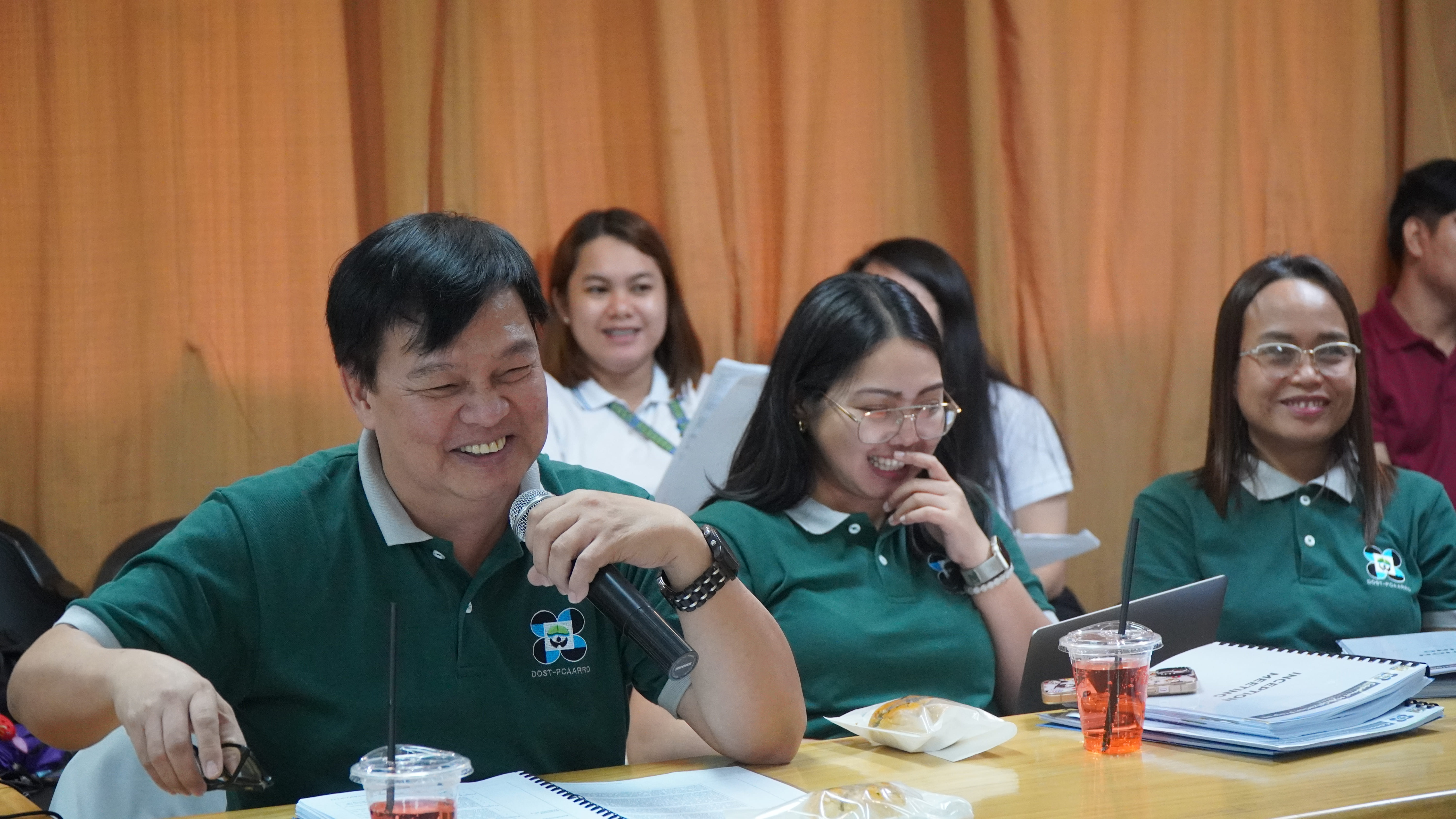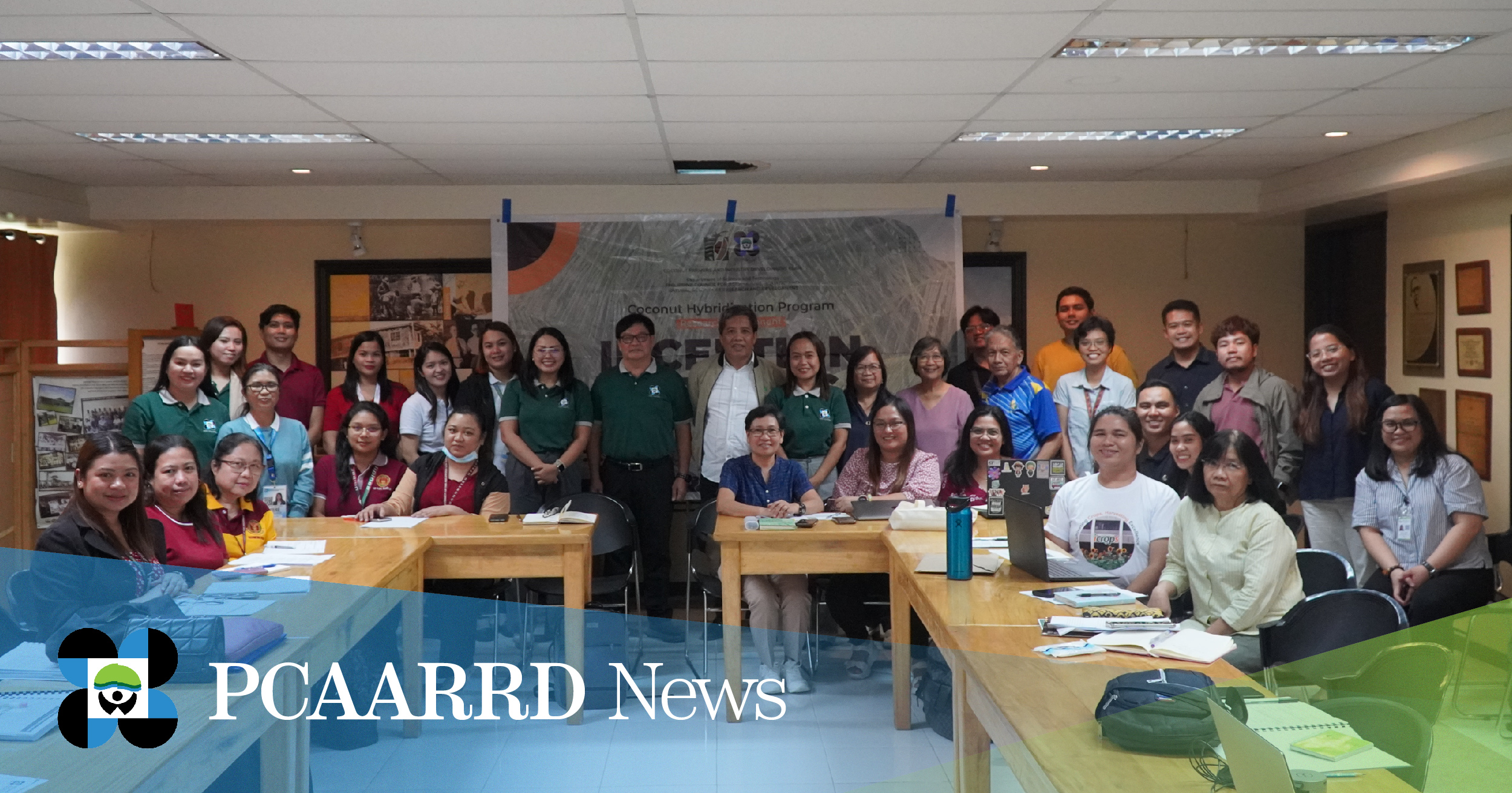
Three projects officially commenced to duplicate the only coconut germplasm in the Philippines, increase the availability of quality seednuts, and enhance the productivity of coconut hybrids.
The Philippine Council for Agriculture, Aquatic and Natural Resources Research and Development of the Department of Science and Technology (DOST-PCAARRD) funds these projects through the Coconut Farmers and Industry Development Plan (CFIDP) Coconut Hybridization Program (CHP) Research.
One of the projects, headed by Director Eureka Teresa M. Ocampo of the Institute of Crop Science, College of Agriculture and Food Science of the University of the Philippines Los Baños (ICropS-CAFS, UPLB), will duplicate the Philippines’ sole coconut genebank at the Philippine Coconut Authority-Zamboanga Research Center (PCA-ZRC), to be located at the UPLB Land Grant, Paete, Laguna. Co-implemented by UPLB and PCA-ZRC, this initiative seeks to mitigate the risk of genetic loss and accelerate the production of coconut planting materials. It also targets to strengthen the country’s coconut productivity through conservation, maintenance, and enhancement of the Philippine coconut germplasm collection.
Another UPLB project, led by Dr. Annalissa L. Aquino, aims to improve coconut nursery management to boost the supply of quality hybrids and parental seednuts. This initiative will develop protocols for sustainable nursery management and monitoring, minimizing resource use while ensuring the robust development of coconut palms.
Meanwhile, the third UPLB project, under the leadership of Dr. Nicola Louise T. Timbas, will evaluate the effectiveness of mycorrhiza-based biofertilizers in boosting productivity of coconut hybrids in Quezon and Laguna. The project hopes to provide alternative nutrient sources that can reduce production costs and improve soil health, offering a sustainable solution to local coconut farmers.
Said projects were launched through an inception meeting attended by UPLB, PCA-ZRC, and DOST-PCAARRD representatives , spearheaded by Deputy Executive Director for Research and Development Juanito T. Batalon, with Crops Research Division (CRD) Director Leilani D. Pelegrina, and the Industry Strategic S&T Program (ISP) Manager for Coconut Alissa Carol M. Ibarra.

Dr. Batalon emphasized the critical role of the initiatives in strengthening the local coconut industry and advancing sustainable agricultural practices.
Additionally, CRD Director Pelegrina highlighted the strategic importance of Luzon as a hub and source of productive coconut varieties.
UPLB CAFS Associate Dean for Research and Extension Lilia M. Fernando-Corpuz expressed her gratitude to DOST-PCAARRD for supporting their initiatives, highlighting that CAFS is proud to contribute to the CHP Research. She affirmed the commitment of CAFS researchers to expand these projects with a focus on the practical needs of coconut farmers and industry stakeholders.
PCA Region IV-A Regional Manager Bibiano C. Concibido, Jr. and DOST-CALABARZON representative Maria Teresa Pamplona also joined the activity, along with key DOST-PCAARRD staff members from CRD and the Finance and Administrative Division (FAD).

